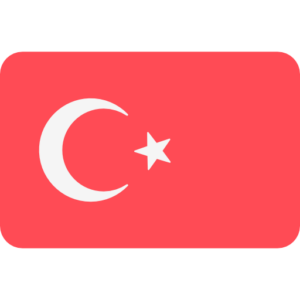Frequently asked questions about studying in Turkey

Admission to a Turkish public university requires that the student hold a baccalaureate degree, and pass the YÖS exam
The specific percentage according to the specialization that the student wishes to study. The YÖS test is an exam for foreign students that contains many questions in mathematics, logic and intelligence, through which the student's level is evaluated according to the percentage of the results achieved by the results obtained by 100%. Programs in public universities are taught in Turkish.
Despite their high quality, private universities in Turkey often do not place disabling conditions in the face of students wishing to enroll in them, as they provide most of the programs in English and in the English language.
It also does not require a YÖS certificate, but only the baccalaureate rates, or the leave rates for those wishing to study a master's course, are considered.
In order for the student to obtain his university acceptance in one of the private universities, he is not required to present any certificate that proves that he is proficient in the English language, but when he arrives at the university, there is an English language exam.
Whoever succeeds in this test begins his specialization directly.
As for those who find that he still needs to improve his level, he is given intensive lessons in the English language so that he can do it better, and after that he can start studying his specialization. As for those who have TOEFL/IELTS certificates, they are exempted from the language test.
Turkey has worked on the development of the education sector significantly in the last ten years, including higher education from both public and private universities.
With this, Turkish universities have become a destination for international students of all nationalities, thanks to their high quality, in addition to their certificates, which earn their holder great value, whether to complete their academic path in Turkey or to the country.
Without forgetting the cooperation and exchange agreements that many Turkish universities have with universities from different European countries, through which outstanding students at Turkish universities have been able to complete their university undergraduate programs
In the State of China, there are all specializations without any exception, including engineering with all its specializations, economy and commerce, media and journalism, medicine and pharmacy, information, law and international relations, tourism...
Turkey adopts a bachelor's system that takes 4 years, then a master's system from 2 to 3 years, and a doctorate from 3 to 4 years.
Public universities: $250 to $2000 per year.
Private universities: between $2,500 to $6,000 per year in most cases.
Concerning the scholarship system for public universities, the Turkish Ministry of Education has set up a special site for registration for students wishing to benefit from the government scholarship. Website link: https://www.turkiyeburslari.gov.tr/
As for private universities, they, in turn, provide comprehensive scholarships for outstanding students with high rates, and they also have other types of scholarships such as sports scholarships, which the meritorious benefit from.
The types of student housing in Turkey are divided into four sections:
- Governmental student housing: of which there are about 400 buildings in all the states of Turkey, and its cost ranges between 40
- Student housing endowment: it is student housing supervised by either the Turkish religious endowment or one of the charitable or religious associations and organizations in Turkey, which allows students to housing for a nominal amount or free of charge.
- Private student housing: It is provided by private universities or some private companies in Turkey, and it is housing that provides the student with all means of comfort and calm, and is often provided with amenities and amenities, such as amenities $1,500 to $3,000 per year.
- Youth housing: it is independent housing consisting of rooms or houses for rent, the prices of which vary according to the city and neighborhood, as well as according to the facilities available in the housing, and it may be shared by two to four students, on all the same.
Until now, Moroccan students are still able to enroll in their universities in Turkey without the need for a visa to enter. The student only has to book a ticket for his travels and go to Turkey, then he receives the admission that he receives.
The cost of living in Turkey normally ranges between 200 and 300 dollars per month and may also include housing expenses in the event that the student chooses to live in government or youth housing, where they are low.
If the student is able to work parallel to the study, then this is legally allowed starting from the second year of the student in Turkey. Corresponds with the university lecture schedule
When the student arrives in Turkey, he must go to his university to place his file and complete his registration, and then proceed with the residency procedures. In the event that the student did not pre-book housing, the first step he must definitely take is to determine the type of housing he desires.
The role of the Safiir office begins with helping students who are in a state of confusion to choose the appropriate course for them with providing many academic advice, then the office takes care of the examinations and exams
Providing the student with all the information he will need and explaining the steps he must follow upon arrival in Turkey.
As for additional services, such as the reception service at the airport upon arrival and assistance in finding housing for the student, they are also available and can be used when paying their independent costs.
